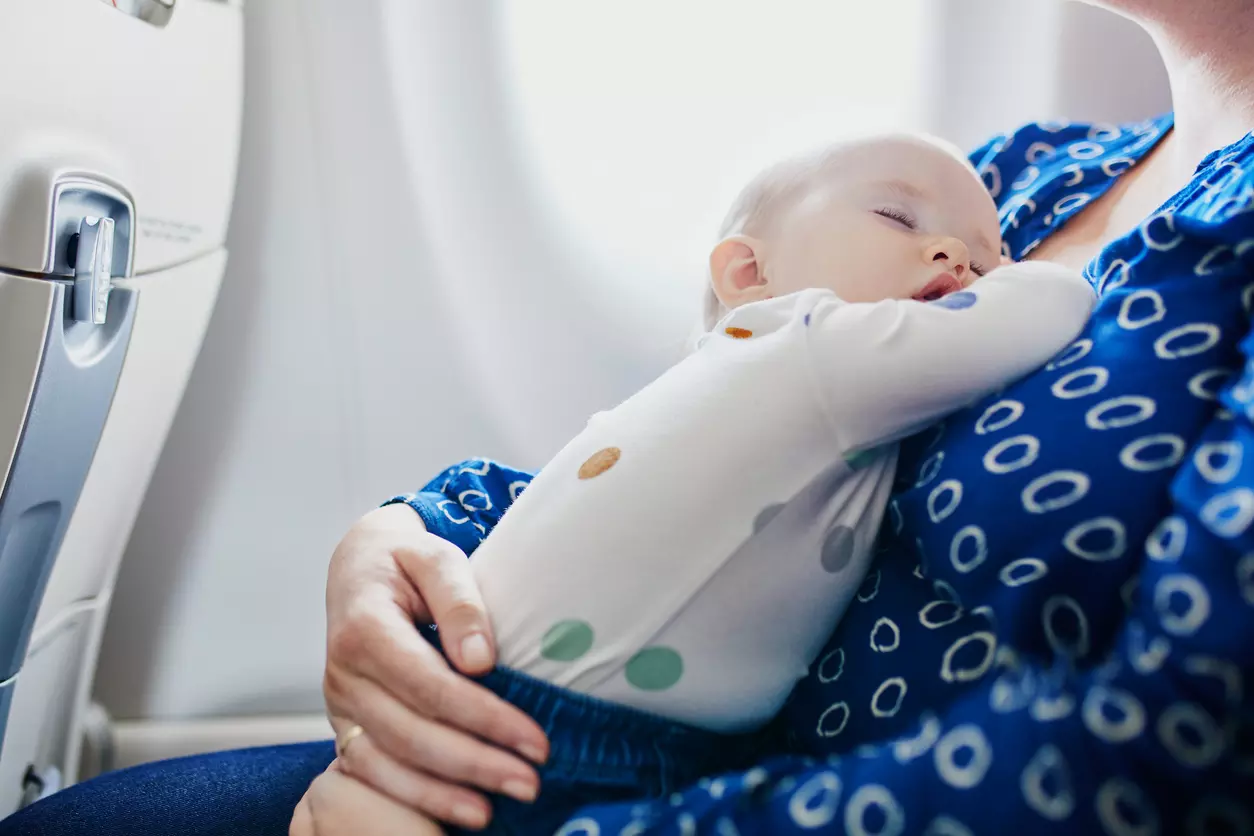
Alaska Airline lesson: Don't hold your baby on the lap while flying
With research predicting flights to become bumpier due to increased turbulence in coming years, it is only pertinent to get an extra seat for one’s infant

The shocking midair blowout on an Alaska Airlines flight last week has served as a reality check for airlines, prompting them to enhance security features of aircraft, and mostly importantly ensure the safety of infants who are often left unstrapped and are cradled on the lap of their parents, guardians or caregivers.
When the door plug of the Boeing 737 ripped off at an elevation of 16,000 feet, all but three passengers had their seat belts on – caregivers carrying three babies on their laps. While luckily no casualty or serious injuries were reported, two phones, a seat headrest and a teenager’s shirt reportedly became airborne under the impact of the blowout. A major tragedy was averted because the plane had just taken off and all the passengers – with the exception of the caregivers – had their seat belts on. But it could have been a nightmare if the caregivers were seated close to the door of the plane, say experts.
Alarmed by the incident and the potential life threat unstrapped infants were exposed to while flying, Jennifer Homendyat, the chair of the US National Transportation Safety Board has urged parents to buy additional seats and Federal Aviation Administration (FAA)-approved carriers for their infants during air travel.
Why infants should be belted
Experts say, even though airlines are designed to withstand massive turbulence, if unsecured or unbelted, passengers can get tossed and hurt badly during mid-flight jolts. The impact may be serious and even fatal for infants.
Homendyat says even minor bumps during turbulence on the flight have the potential to cause serious injuries.
With US laws not mandating separate seats for children under 2 years on flights – as they can sit on the lap of their parents or guardian – experts say it exposes them to risk and getting hurt during turbulence or even death during Alaska Airlines blowout-like episodes.
“If there had been a passenger holding a kid close to where that plane blew off, the explosive force was such that the kid being held would have been torn from the hands of their parents, and they would have been sucked out of the plane,” Washington Post quoted Kwasi Adjekum, an assistant professor at the University of North Dakota’s Department of Aviation.
Air turbulence on the rise
With research predicting plane journeys to become bumpier due to increased turbulence in the coming years, it is only pertinent to get an extra seat for one’s infant to protect them from injuries during flights.
According to a study by researchers at the University of Reading in England, climate change is expected to severely increase the frequency of air turbulence by 2050.
The researchers found that flight routes to the US and the North Atlantic saw the largest increase in turbulence while a significant rise in turbulence was also reported in routes in Europe, the Middle East and the South Atlantic region.
Most of this turbulence is clear-air turbulence which can strike out of the blue and even when passengers are not belted (usually after the take-off is done).
Flying guidelines for infants
Indian airlines like IndiGo and Air India allow infants below the age of two years to travel ticketless while mandating that they must be seated in an “adult’s lap”. There, however, is no guideline to ensure the security of the newborns.
In the US, while it is still not mandatory for parents to buy an additional seat for their newborns below two years, the FAA deems it safe for infants to ride in properly secured safety seats.
Federal law also mandates parents to book a separate seat for their children above the age of two and get a proper restraint device like a car seat.
In the US, airlines also provide caregivers to carry babies on their laps during flights.
How should parents ensure safety of newborns?
Experts say that the best way to protect your baby is to buy him or her an infant car seat (one that will fit in the airplane seat).
Parents can try booking early to find seats close to them and request airlines for priority boarding to help them settle the baby early.
Doctors say flying should be avoided for premature babies or those born before their due date. It is because pre-term babies need more time for their lungs to mature and flying in a pressurised cabin can affect their lungs.

